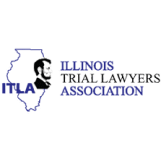How Is Traumatic Brain Injury Diagnosed?
An Elusive Injury
Traumatic brain injury is a serious condition requiring immediate medical attention. But diagnosing traumatic brain injury (TBI) can be challenging, as numerous symptoms can appear. This makes TBI an especially dangerous injury because it can worsen over time without proper treatment.
Testing for TBI
A neurological examination testing for motor and sensory skills is the first step to diagnosing TBI. Emergency medical providers will often ask the patient questions about what they can feel and ask them to complete simple tasks like making a fist or gripping an object. If these tests indicate possible brain injury, medical providers use brain scans to confirm a diagnosis and assess the scope and severity of the damage.
CT scans take cross-sectional x-ray images of the skull to identify fractures, bleeding, brain tissue swelling, and bruising. MRI scans are also used to identify more subtle signs of TBI including scaring or minor bleeding or tissue damage, which a CT scan could miss.
In addition to these scanning methods, healthcare providers will evaluate the patient’s symptoms to diagnose TBI. But again, TBI patients can suffer a wide range of symptoms including:
- Loss of consciousness
- Headache
- Nausea or vomiting
- Drowsiness
- Dizziness
- Cognitive deficiencies
- Slurred speech
- Loss of sensation
- Loss of vision
- Ringing in the ears
- Seizures
- Lack of emotion regulation
- Loss of bowel or bladder control
- Memory problems, and
- Mood swings
Some symptoms appear immediately, while others can take weeks or even months to surface. Unfortunately, many people aren’t correctly diagnosed with TBI after an accident, which is made worse without treatment. For this reason, it’s crucial to seek emergency medical treatment after an accident so you can be thoroughly examined. You may not recognize signs of TBI. But TBI—if left untreated—can manifest itself in serious and long-term symptoms.
Why a Proper Diagnosis Is Important
If you’ve been in an accident, don’t rule out TBI. Concussions are a common injury after car accidents and also a form of TBI. Also, never ignore symptoms of any kind after an accident. Even seemingly unrelated conditions, such as depression, can indicate TBI. Don’t rush into settling your claim before you know the full scope of your injuries. TBI often isn’t diagnosed right away, so follow your medical provider’s recommendations and never settle before you’ve fully recovered and spoken with an Illinois auto accident attorney.
Preventing TBI is just as important. Always wear a seat belt in a car, which can reduce the chance of head injury, and wear a DOT-approved helmet if you are a biker or motorcyclist. And seek medical treatment immediately after an accident to catch and treat TBI before it worsens.
If you’ve been seriously injured, Arlington Heights personal injury attorney Ronald F. Wittmeyer can help. With more than 30 years experience practicing plaintiffs’ personal injury law, we can fight aggressively on your behalf. Serving the Northwest suburbs including Arlington Heights, Buffalo Grove, Palatine, and surrounding areas, the Law Offices of R.F. Wittmeyer, Ltd. helps level the playing field against major insurance companies and corporations. If you’ve been injured or involved in an accident, call our office at (847) 357-0403 or fill out our online form to schedule a free consultation with one of our highly qualified Arlington Heights personal injury attorneys. The sooner we can learn about your case and your needs, the more effective we can be at recovering fair and adequate compensation for your losses.














